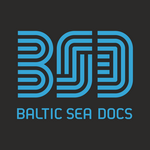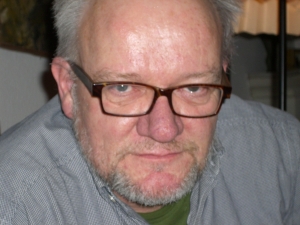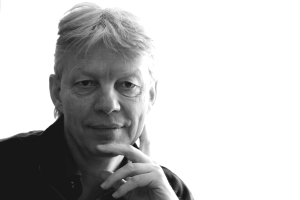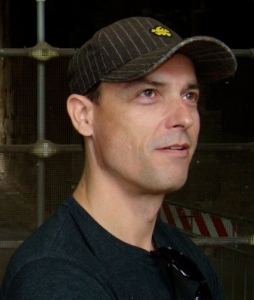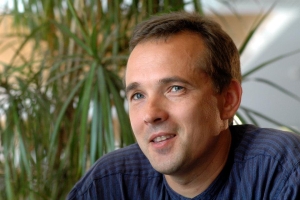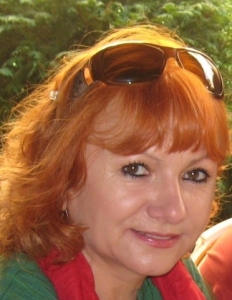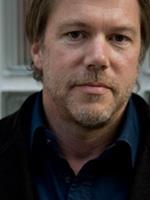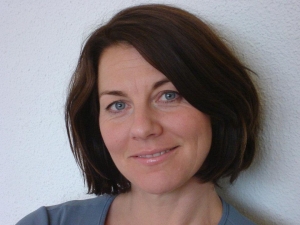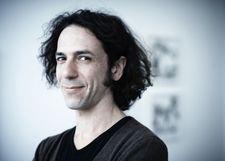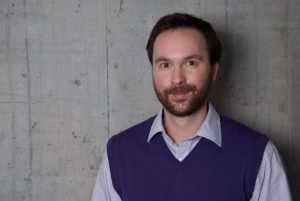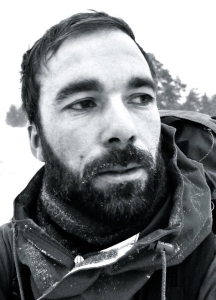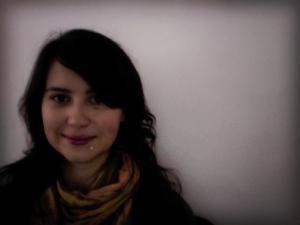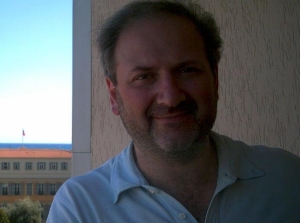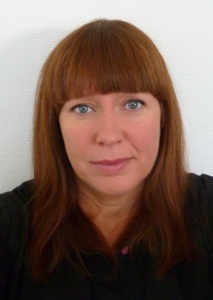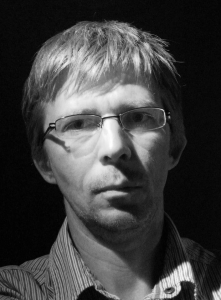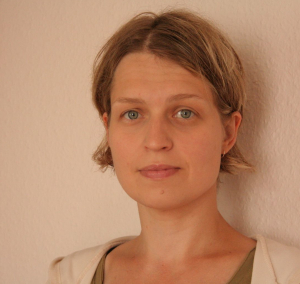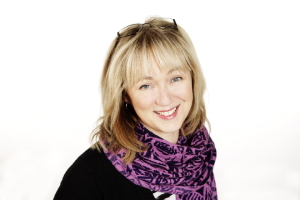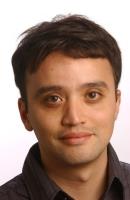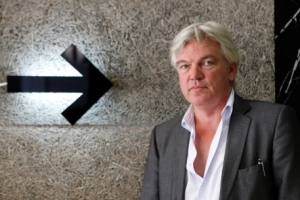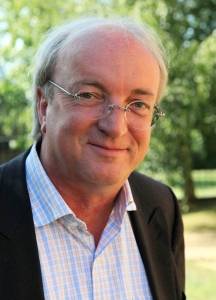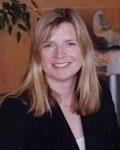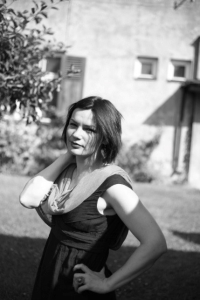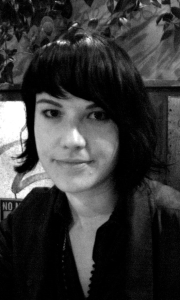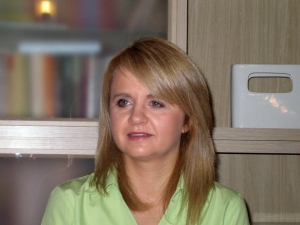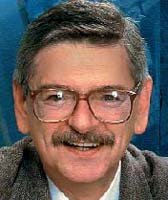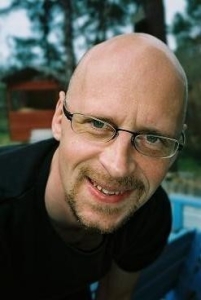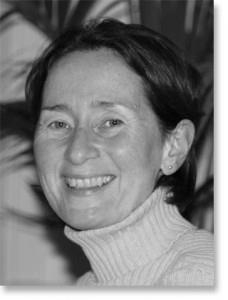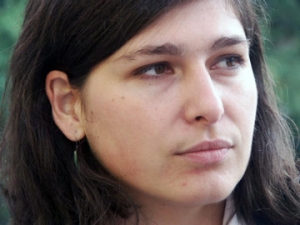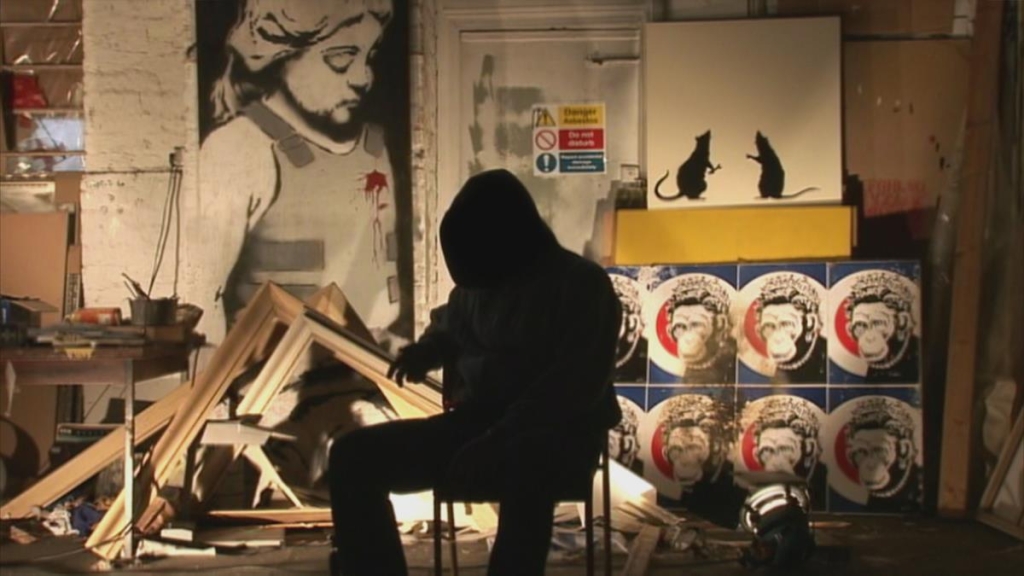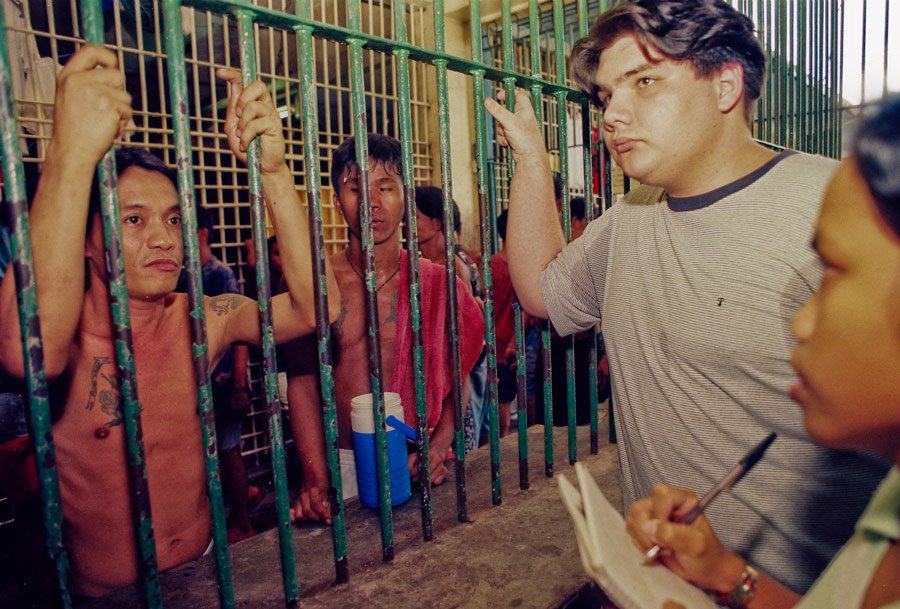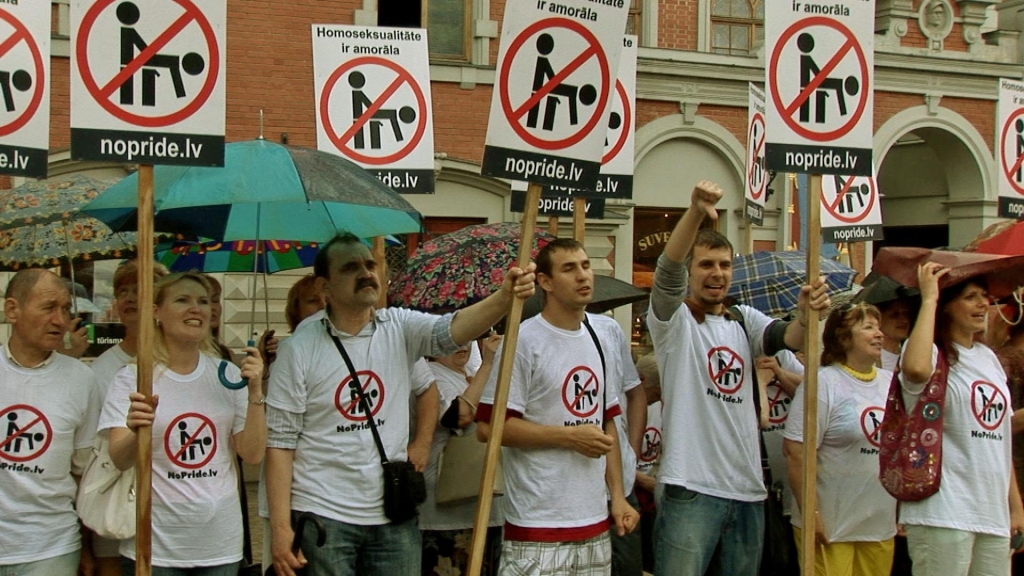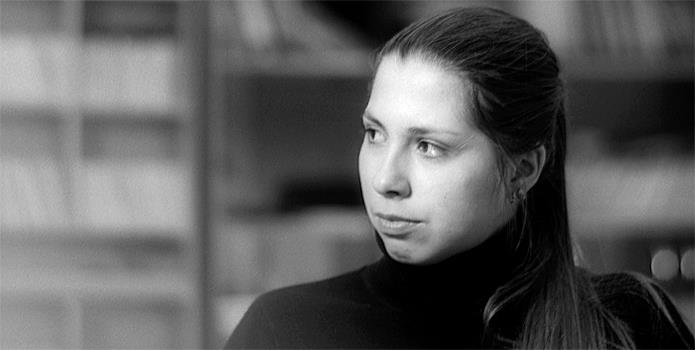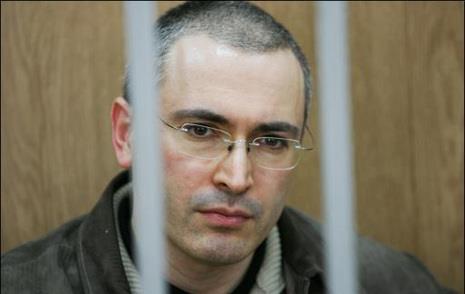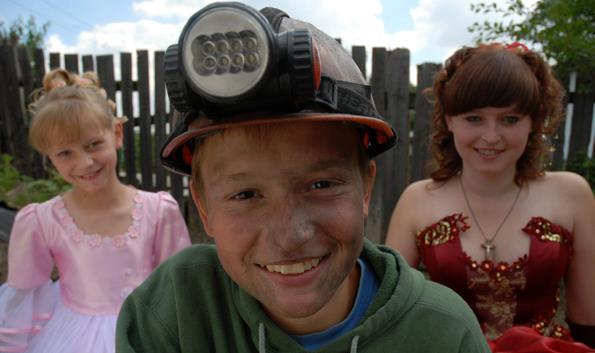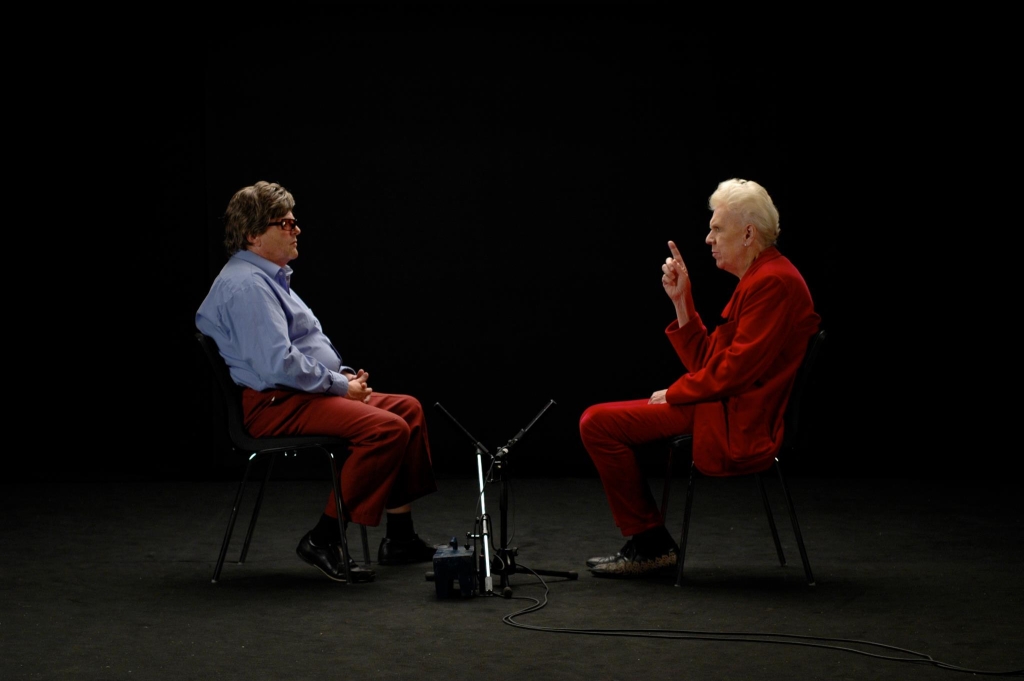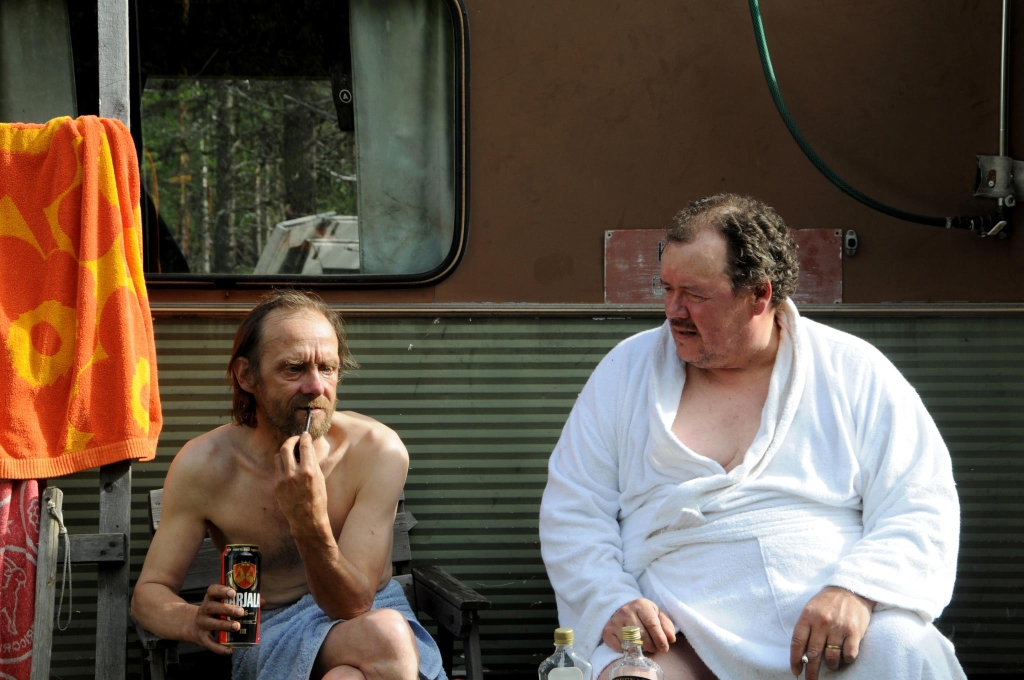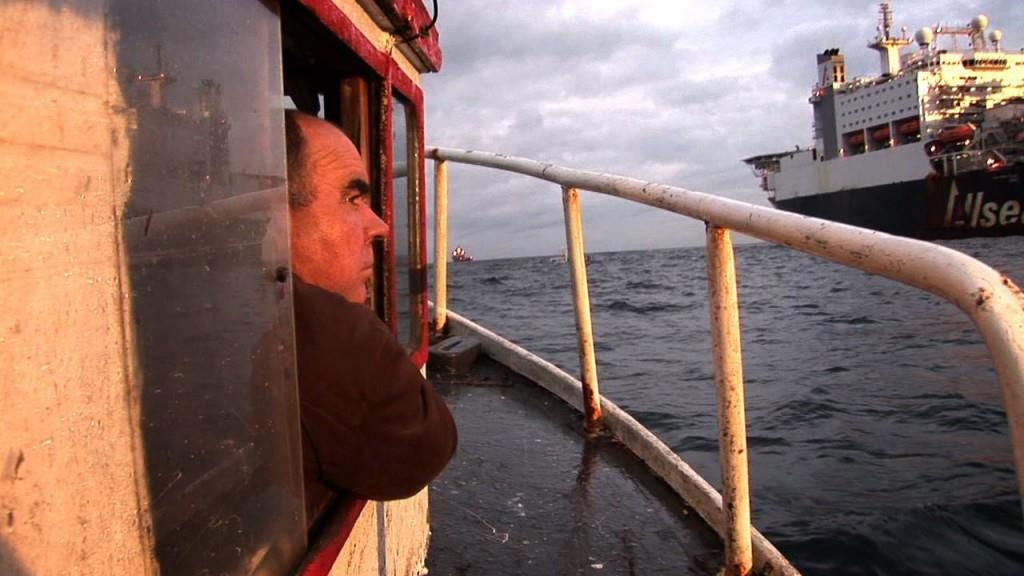Forum Projects
| Coutry of origin | Title of the project | Producer /Director / Company | Synopsis |
|---|---|---|---|
| ARMENIA/ NORWAY | Armenia Wants a Piece of the North Pole… and the South Pole too! | Prod., Dir. Vardan Hovhannisyan | The North and South Poles – melting ice, scarce resources, invoking fierce competition between big nations. Armenia wants in too…Using the humorous device of claims to the North and South Poles by two Armenian comedians, this film will highlight the absurd lengths to which nations go in the name of greed. |
| ESTONIA | Ahto | Prod. Erik Norkroos
Dir. Jaanis Valk |
On this planet we live on, covered with blue water, we all have something in common independent of our skin, sex or age. We all have a dream… This is a film about a young man who grew up on the Baltic Sea coast and through lessons from his father, a deep-sea captain, learned the mentality of the coastal people, and about making a dream come true. |
| ESTONIA | Hallo Cosmos, Hallo Põltsamaa! | Prod. Riho VästrikDir. Heli Tetlov | The secret manufacture of space food for Soviet astronauts was launched in 1962 in the Estonian town of Põltsamaa. While Moscow celebrates the first human flight into space, tube-food experts and astronauts come together to unveil the old recipes and take a gastronomic trip from the past to modern day. |
| ESTONIA | Out of Fashion | Prod. Katrin Kissa
Dir. Jaak Kilmi |
A documentary about one fashion designer’s initiative to change the fashion industry’s environment-gluttonizing nature with an ethical way to produce clothing. Thousands of factories in the third world don’t only produce clothing for different large companies, but also tons of textile waste that travels straight to landfills (or into nature, if there are no landfills); If unsold jeans from big retailers are cut into pieces and thrown in trash bins to free up space for new products, why not re-design dresses from the unsold jeans instead? In our film, trash is fashion. It is the black conscience hidden behind the fashion industry’s radiant smile. |
| ESTONIA/ FRANCE/ UK | Dora Gordine: Ars Gratia Artis | Prod. Peeter Urbla
Dir. Annaleena Piel Linna |
Art. Adventure. Passion. Pretence. Joie de vivre. The illustrious life of Dora Gordine (1895-1991): sculptor, designer, high-society darling, opportunist extraordinaire, and a closeted Jewish runaway who rose from the pits of Eastern Europe to find herself in line for the British throne. |
| GEORGIA | See You In Chechnya | Prod., Dir. Alexander Kvatashidze
Lokokina |
See You in Chechnya is a deeply personal authored film about the intertwined stories of a group of idealistic war reporters who risked everything to cover a vicious conflict more than a decade ago – and how the experiences of those who survived continue to affect their lives today. |
| GERMANY/ POLAND | Stalin, Mon Amour | Prod. Michael Truckenbrodt
Dir. Piotr Rosolowski time prints / Kosma |
A film about the Georgian women who work in the Joseph Stalin Museum in Gori. All of the museum’s employees adore the brutal dictator, while many are head-over-heels in love with him. They worship paintings of him. They dream about him. The museum is located in his childhood home and the dictator is portrayed not only as a politician and victor, but first and foremost as a loving husband and caring father.What is the secret of Stalin’s popularity among the women of Gori? Why is this man, seen by the world as one of the worst despots of all time, adored so much here? This is explained to us by the museum’s female employees of various generations. |
| IRELAND/ LITHUANIA | Voices … | Prod. Jeremiah Cullinane, Rasa MiškinyteDir. Mark Byrne, Robert Dennis | Stories from the lives of a range of people living in exile, close to home, but far away. |
| LATVIA | The Chronicles of the Last Temple | Prod. Guntis Trekteris
Dir. Dāvis Sīmanis |
The film poetically observes and records the construction of the new Latvian National Library, the most controversial and long-discussed edifice in modern Latvian history. Twenty years after the first sketches, it has become the most expensive public building in Riga, as well as an object of both protests and radical attacks, and a never-ending debate of its visual qualities. Three characters: the chief architect, a jib-crane operator, and a protester, have been chosen to reveal the eternal conflict between the greatness of conception and mass sacrifice in the name of obscure ideas. |
| LATVIA | My Six Million Dollar Fraudster Father | Prod. Līga Gaisa
Dir. Ieva Ozoliņa |
The film poetically observes and records the construction of the new Latvian National Library, the most controversial and long-discussed edifice in modern Latvian history. Twenty years after the first sketches, it has become the most expensive public building in Riga, as well as an object of both protests and radical attacks, and a never-ending debate of its visual qualities. Three characters: the chief architect, a jib-crane operator, and a protester, have been chosen to reveal the eternal conflict between the greatness of conception and mass sacrifice in the name of obscure ideas. |
| LATVIA/ RUSSIA | Without Fear | Prod: Guntis Trekteris
Dir. Herz Frank, Maria Kravchenko |
In 2004 Larisa Trembovler , philosophy professor and mother of five children leaves her husband and marries Yigal Amir – the assassin of Yitzhak Rabin. Three years later she gives birth to their son. The unique story of life, death and love is to be told by veteran filmmaker Hertz Frank. |
| LATVIA/ RUSSIA | Sugar Roads | Prod. Antra CilinskaDir. Liene Laviņa | In inter-war independent Latvia there were three sugar factories in total. There was a popular saying in the country that in every tea cup three teaspoons of sugar should be poured in – one for each of the factories. Sugar production was the pride of the nation, its symbol and identity. It combined the ideal of Latvians as of an agricultural people and at the same time the ideal of the industrial development, modernization, bidding national interests in the first place and the ideal of successful competing in the international market. In 2007 the last sugar factory got closed in Latvia – it was the sugar factory of Jelgava.This film tells about impact of how joining the European Union, which has brought the long-awaited equal participation in the European community, has made an impact on society on different levels – economically, politically, emotionally. |
| LITHUANIA | Toys | Prod. Dagnė Vildžiūnaitė
Dir. Lina Lužytė |
The film tells five stories of the ordinary people of Zhlobin – a small town in Belorus. Its locals have come up with a business idea to make and sell plush toys. They are all making toys, selling them, having chats, drinks, making toys again, singing, fighting and… making toys again |
| LITHUANIA | Father | Prod. Dagnė Vildžiūnaitė
Dir. Marat Sargsyan |
Vidas Zenonas Antonovas has been nicknamed “Father of the Mafia“. 20 years of his life has been spent doing time in 15 different prisons. Now he is 71 and has a big family – 10 children, 2 grandchildren, and a newborn son. This is a documentary about the drive of an insatiable lust for life. |
| LITHUANIA | Living Among Herbs | Prod. Arunas Matelis
Dir. Ramune Rakauskaite |
A story about women of incredible destiny and mission: to some people they are sorcerers or witches, but to others – savers who cure people suffering from dangerous illnesses by using herbs and incantations. These three herbalists, today’s Avicennas, suffered painful and tragic breakdowns in their own lives, and found salvation from the ups and downs of the body and soul as well as solitude in herbs. They live in harmony with nature, with its many treasures and secrets, analogous to those in pharmaceutical Laboratories. |
| NORWAY | Northerners in Times of Cholera | Prod. Bjørn Enes
Dir. Frode Vestad |
Modernity meant prosperity to Europe: Wealth – freedom – enlightenment. But it broke through by bloodshed, riots, wars, epidemics and mass death. Northerners in times of cholera is the story about how the impact of microbes grew bigger than the impact of greed, thirst for power and revolutionary struggle for freedom. |
| POLAND | Buddies | Prod. Paweł Kedzierski
Dir. Joanna Kaczmarek Kronika Film Studio |
A film about an unusual friendship. Blind Rysiek has no other choice: if he wants to carry on with his passion – marathon running – he has to rely on Felek. However, it becomes apparent that in everyday life it is Felek who relies on Rysiek. With his strong will and determination, Rysiek proves time after time that in fact anything is possible. It is Rysiek who becomes a driving force in Felek’s life, and not the other way around. |
| RUSSIA | Men’s Choice | Prod. Vlad Ketkovich
Dir. Elena Demidova |
Geography of the film – from the Arctic Circle to the south of Russia. Heroes – shift workers who produce gas. Two or three months they work in the north. Gas goes to Europe. Workers go home. At home their neighbors are poorly paid and drink. Our heroes make their men’s choice and go to the north again. It is a hard work, they are far from their families, but they come home with money. there is no more time and reasons to drink. There is no hopelessness and despair any more. They are different people already. They are men. |
| RUSSIA | Perm-36, a Territory of Freedom | Prod., Dir. Sergey Kachkin
April Film Lab |
Perm-36 is a unique historic museum of political repression in Russia. Annually the public civic Forum Pilorama takes place here. In the camp were such well-known political prisoners as Sergey Kovalev (a busy human rights activist), Mikhail Meilakh (a literary scholar, PhD, professor of Strasburg University), Timofeev Lev (a literary critic and novelist). The main idea is to bring the former prisoners to the camp during the Pilorama Forum. Through the organized discussion try to understand: should the modern society of Russia solve the problems of the whole Russian history of the XX century? Should the Russian government develop a national program in memory of victims of the totalitarian regime? What’s going on with democracy or in general, with civic society in our days in Russia? |
| RUSSIA | Heralds from the Big World | Prod. Vlad Ketkovich
Dir. Tatyana Soboleva |
Every year in May, 20 doctors, men and women, leave their families, board a ship and sail until the autumn. They travel to locations inaccessible by roads, but only via the river as soon as the ice disappears. They are envoys of the big world. |
| SWEDEN | I Stop Time | Prod. Jan Blomgren
Dir. Gunilla Bresky . |
I Stop Time is the unique testimony from a war photographer during the Second World War. Vladislav Mikosha is a young, charismatic man who loves movies. He works in cinema and decides to become a cinematographer. One beautiful summer night his life completely changes. Hitler’s troops attack, and soon he is in the war documenting unimaginable atrocities. He holds the camera up as a shield and miraculously survives. |
Tutors
DOCUMENTARY CONSULTANT, DENMARK
Born 1947. Worked with short and documentary films for more than 20 years at the Danish Film Board – as press secretary, head of distribution and information and as a commissioning editor. Articles for national and international newspapers and magazines. Co-founder of Balticum Film- and TV-Festival, Filmkontakt Nord and Documentary of the EU. Has given documentary courses and seminars in more than 40 countries. In 2004 awarded the Danish Roos Prize for his contribution to the Danish and European documentary culture. From 1996 (when it started), until 2005 director of EDN (European Documentary Network). Given the EDN Life Achievement Award 2005. From 2006 free lance consultant and teacher in Danish and European documentary matters, including Head of Studies at Ex Oriente, Prague until 2008. Consultant for Parallel40, Barcelona and Head of Pitching Forum of DOCSBarcelona. Selecting consultant for the festivals Magnificent7 in Belgrade, DoxBox in Damascus and DOKLeipzig. Teacher at the documentary film school Zelig in Bolzano, Italy. Head of Studies at the European training programme Storydoc for film projects from the Mediterranean.Tutor at other training programmes like Archidoc, DocuRegio, DOCMeeting Buenos Aires and Bridging the Gap in Edinburgh. Writes at www.filmkommentaren.dk.
Head of Studies, EDN, Denmark
Mikael has been a dedicated documentary filmmaker since he made his first S-8mm documentary, in 1977, now hidden for the public in his cellar. Most of the 80′s Mikael worked with distribution and theatrical release of documentaries.
In 1988 he attended script writing at the Danish Film School. Worked as a freelance production manager up through the 90′s and organized the film festival ‘Films from the South’ from 1995 – 1998. Made a desk-cross-over from 1998-2002, where Mikael worked as production adviser at The Danish Film Institute. Mikael started his exclusive career as tutor at EDN workshops in the same period. Attended EAVE 1998/99. 2002-2008 was a co-owner and producer at Final Cut Productions in Copenhagen. Has produced a number of international documentaries, among them The German Secret, Joris Evens Competition at IDFA 2005. An EDN Executive Committee Member from 2005 – 09, the last year as Chairman. Now serves at Head of Studies at EDN.
Editor, DENMARK
Jesper Osmund edited his first feature film in 1991 after years of working as an assistant editor. He then continued editing several feature films, short films, mini series and hundreds of commercials until the mid 90ies, where he decided to turn more into documentaries.
Today he has edited more than 50 documentaries, many of them internationally awarded. The later years he has focused mainly on internationally co-produced feature length documentaries. He also started to hold seminars and tutoring Pitching and RoughCut Workshops arranged by EDN, IDF and IDF Academy.
Among his recent films you find:
Harbour of Hope (Sweden, Denmark, Norway, Poland, Germany)
The controversial BANANAS!* (Sweden/Denmark/Finland/Germany/USA) shown at more than 100 festivals.
The award winning films Long Distance Love (Sweden), Imagen Final/Final Image (Argentina/Chile/Sweden/ Denmark/USA), The Well (Sweden/Italy/Norway/Denmark/Switzerland) and Juntos/Together (Denmark/Norway/Finland/Italy).
PRODUCER, VIDES FILMU STUDIJA, LATVIA
Uldis Cekulis created the independent production company Vides Filmu Studija (VFS) that has become the leader in the Baltic States in making documentaries and TV programmes with a focus on man and nature stories. He has worked on more than twenty documentaries both as a producer and cameraman. His camerawork for the documentary Theodore (2006) helped the film win the Best Baltic Film Prize at the International Film Forum Arsenāls (Riga). Many of the documentaries he has produced such as Roof on the Moonway (2001) and Dream Land (2004) have travelled around the world. He has also worked with multimedia projects, and for eleven years has been producing a weekly half-hour environment and nature programme for Latvian TV. He has co-produced documentaries with Estonian, Russian, German, Italian and French production companies, as well as with the TV channels LTV, ETV, LRT, NDR, arte, YLE, SBS TV, ORT, ERT and RAI SAT.
Film maker/consultant and lecturer, THE NETHERLANDS
Rada Šešić, born in Croatia, worked as a film critic and director of several short and documentary films in Sarajevo, Bosnia and Herzegovina.Today Rada lives in The Netherlands and works as a film consultant and a film programmer. She is one of selectors for IDFA and a committee member of Jan Vrijman Fund. Šešić also works as a programme advisor for IFFR Rotterdam and is in a committee of Hubert Bals Fund.
At Sarajevo Film Festival, she heads the Competition Documentary section, a newly started Rough Cut Boutique workshop done together with Balkan Documentary Centre. Since two years ago, Šešić became a Program advisor on South Asian and Balkan cinema for DOK Leipzig. For already two decades, she has been following closely production of South Asia. She lived in India during the 1990-ties and specializes in Indian cinema and is one of programmers at Kerala IFFK. Served at the several juries (a.o.Joris Ivens Jury at IDFA, Moscow, Crakow, Bombay, Karlovy Vary, Geneve, Prizren, Zagreb Dox, Sarajevo FF,Bornholm, Arhuis,Neuwebrandenburg, Strumica, Rhodos, New Delhi, Warsawa, Prague, ZagrebFF, Motovun, Trivandrum).
For eight years was guest lecturer at the University of Amsterdam and is still giving workshops at the Dutch Film Academy, Universities- Anadolu in Eshisehir, in Geneve Ecole superieure des Beaux-arts and at Sarajevo ASU, at Srishti Institut in Bangalore, India.
As a scriptwiter and director, made four films in the Netherlands: Room Without a View, 1997, Soske ,2001 and In Whitest Solitude, 2002, Way to School (2007).Her films were exhibited, among numerous other festivals, at MOMA –New York, IDFA, IFFR. As a tutor, works regularly at documentary workshops by EDN, Dragon Forum, Ex Oriente, Balkan Documentary Center and Indian Doc Edge.
Šešić writes for Skrien (The Netherlands), Dox (Denmark), Film Guide Variety (UK), Documentary Encyclopaedia (USA), Film Annual (Croatia), Sineast (Bosnia and Herzegovina), collaborated on the books: 24 Frames by Dina Iordanova and on Bhimal Roy by Rinky Battacharya. Together with friends Rada started two films festivals and works as the head of programming at Doku Art in Bjelovar/Croatia and Eastern Neighbours in Utrecht/The Nertherlands.
Managing Director JWP- Catalonia, Spain
Journalist and Cambridge University graduate in Classics.
In 1991 he settles in Barcelona, and starts collaborating with magazines and newspapers such as The Independent Magazine, Granta, The New Statesman, The Boston Globe Magazine, El País Semanal, amongst others. He develops an interest for “narrative journalism”.
In 1996 he sets up JWP to produce reportages in Africa, Eastern Europe and Latin America for British television, which got recognition from the Foreign Press Association and The Royal Television Society in the UK.
His main titles as a documentary director are:
– “FC Barcelona Confidential” obtains the Prix Europa 2005 and the Adolf Grimme award (Germany) in 2006.
– ”El Fotógraf del Exode” about African inmigration, awarded in France, Cuba, Spain and Germany (2007)
– “Connexió Madrid” selected for various festivals 2007.
– “Last White Man Standing” – 2009, Plus Pictures Denmark.
– “José Maria Aznar, unfinished Business” 2010, TVCatalunya
– “Convict the Judge” 2011, TVC-RTS. Selected at the Docs DF Mexico and Human Rights Int Festival in Mexico, and Fest. Int du Film des Droits de l’Home, Paris. Docs for Sale.
For more www.jwproductions.tv
DEPUTY DIRECTOR, FIRST HAND FILMS, SWITZERLAND
Joined First Hand Films in 2002 where her work includes project development, financing & packaging, marketing strategy, executive producing, sales and acquisition. Previously Gitte has worked with international distribution of feature films, inhouse factual production at DR-TV, she was Head of Information and Promotion with Filmkontakt Nord for five years in Copenhagen, coordinator of the Nordisk Forum for Co-financing of Documentaries, and has worked for the former MEDIA project DOCUMENTARY, which included the first edition of the EDN TV Guide and a study on the European Documentary sector regarding co- production and film financing. She has joined Vertigal Strategies, Eurodoc session, Transmedia Next and serves as consultant and tutor at local and international workshops and events. Gitte has served on several juries at film festivals around Europe and holds a master in Film and Rhetoric from the University of Copenhagen.
UPIAN, FRANCE
Alexandre Brachet, e-producer and CEO of ‘web producer’ Upian, is one of the world’s major players in the area of web documentary and the intersection of documentary cinema and digital storytelling. In recent years, Upian has produced or co-produced some of the most highly regarded web documentaries, including Lacitedesmortes.net, Thanatorama.com and Gaza-Sderot (2008), the project with which Brachet put the interactive documentary on the map. In the spring of 2011, Upian launched Prison Valley, a new kind of interactive road movie: a journey into the American prison industry, directed by Philippe Brault and David Dufresne and co-produced by French TV channel ARTE. Alongside its production activities, Upian is a successful web agency, creating websites for brands and media. In June 2008, Upian also opened a contemporary art gallery next door to its offices.
Film Fund Hamburg Schleswig-Holstein, GERMANY
Born in 1977, Till Hardy holds a masters degree in economics and another master in cultural sciences. He has been working for the Film Fund Hamburg Schleswig-Holstein (FFHSH) since 2006 and since 2009 he is project manager for the international project FIRST MOTION. Before his time with the FFHSH he has been working in the industry in various companies and positions, mostly with film but drifting more and more into transmedia.
First Motion looks at the digitisation topic from different angles and combines them into a unified approach thereby fostering innovation. First Motion is an EU project for the Baltic Sea Region, it funds new formats and ideas and develops a distribution platform, as well as researches new markets and value-chains, develops training and education courses up to Master level and improves clusters and policy guidelines.
Kristian Mosvold is educated cand.theol and is now working as a producer in Substans DA (www.substans.org), and as an consultant for the EU-funded project First Motion (www.firstmotion.eu). He has acted as Development producer / production leader in the project Himmelen bak huset (Heaven Behind the House) – director Steffan Strandberg, short, 24 min, Norway 2011, and as a producer of Skip a Beat – director Janic Heen, Music Video, Norway 2011.
And is working on three new projects: Insight – a web based mockumentary series following the extremely self-pretentious performance artist Johannes (director Janic Heen); Punkt – a documentary about the history of the electronic music festival Punkt featuring artists like David Sylvian, Jon Hassel and Brian Eno (early development); Room for Rent – a short film about the Concept of Anxiety (director Eirik Tveiten).
Decision Makers
Autlook Films, Austria
Andrea studied economics in Vienna, London and Paris and holds a Master’s Degree in Marketing & Sales. She worked in several marketing agencies in Austria and in the Public Relations department at the Cultural Secretary in Oaxaca / Mexico, before joining the Autlook team as a Festival Manager. Since 2009 Andrea is in charge of worldwide TV Sales at Autlook,… together with her colleague Salma Abdalla. In her position she attends all important TV markets, festivals and pitching forums. She‘s a EURODOC 2010 graduate.
AUTLOOK FILMSALES is a worldwide sales agent for powerful, daring and acclaimed docs. We select around 25 TV-documentaries a year and up to 6 docs with worldwide theatrical potential. Autlook is a full-service sales agent, 5 people strong, handling festivals, TV-, theatrical-, educational-, DVD- and digital sales worldwide.
We look for auteur-driven, cinematic docs with international appeal.
Lichpunt, Belgium
Wim Van Rompaey was born in 1953, is married and a father of two children. He holds Master’s degree in Modern History at the Free University of Brussels in 1975. Works as a producer of Lichtpunt since 1981.
…
Lichtpunt is an independent broadcaster and has a two weekly TV-programme on the second channel of the Flemish public broadcast (VRT). Lichtpunt is subsidised by the Flemish government.
The mission of Lichtpunt is to bring documentaries, interviews and feature films from a humanist point of view. Therefore Lichtpunt broadcasts human/social-interest programmes. Lichtpunt produces a part of its programmes by its own staff, but also buys and co-produces on the international market.
CBC, Canada
Alex Shprintsen was born in the Soviet Union and came to Canada as a child in 1976. He graduated from the University of Toronto with an M.A. in political science just as the USSR was collapsing. He then turned to journalism and, in the early 1990s, he first worked for the BBC World Service Radio in London, then as a stringer for the L.A. Times newspaper in Kiev. In 199…4, he joined Canada’s public broadcaster, the CBC, and has been there ever since. Now Alex is an award-winning CBC producer who in the last 15 years, has mostly been directing current affairs documentaries on a range of subjects: Canadian politics and culture; international terrorism; investigative journalism; above all, Russia and the former Soviet Union. He speaks fluent English, French and Russian.
DR International Sales, Denmark
DR International Sales is a part of DR, the Danish Broadcasting Corp., and is Scandinavia’s largest distributor of high quality programming. We distribute documentaries, fiction and children’s programming produced in-house by DR as well as by independent producers and production companies to broadcasters world wide.
…
We are looking for strong international documentaries for distribution, preferably 1 hour but also feature and series. Topics should be of interest to an international audience and can range from strong social and political themes, over investigative journalistic films to arts and culture. Generally unique stories and strong narratives.
Charlotte Gry Madsen has an MA in Media Studies from Copenhagen University and supplementary training in documentary co-production and financing. Previously worked with television production, but moved on to DR and international distribution in 1998.
EFF, Estonia
The Estonian Film Foundation (EFF) is responsible for supporting professional Estonian film production and promoting Estonian film culture. It operates under the auspices of the Estonian Ministry of Culture and its budget for 2011 is € 3,45 million, which is mainly used to finance features, shorts, animation, and documentaries (€ 530 300). International productions are supported only with Estonian co-producer on board. www.efsa.ee
ERR, Estonia
General: Estonian Public Broadcasting consists of 5 radio channels and 2 television channels, ETV and ETV2. ETV main channel is for general audience while ETV2 is more for children, educational, Russian language and cultural programmes.
Acquisitions: Average yearly budget for acquisitions – about 1 million EUR…
Co-Productions: Mostly local co-productions but open to pre-buys (for creative documentaries mainly). Can only support international co-productions involving an Estonian independent production company.
Main documentary film slots:
Current affairs docs: weekly, 1 hour
dokkaader (docframe): creative author films, weekly, open end
AegRuum (TimeSpace): scientific docs, weekly, 1 hour
Natural History: weekly, 1 hour
Music documentaries: weekly, 1 hour
YLE, Finland
YLE is the national public service broadcasting company in Finland with duties laid down by law. YLE operates 4 national television channels, 6 national radio channels and a growing internet service. YLE ranks first in television viewing in the country. YLE is the main purveyor and producer of domestic culture, and 46% of its television programmes are made in Finland…. YLE is a limited company mainly owned by the Finnish state and principally financed through television fee revenues. YLE is a media company free from commercial and political affiliations, and its programmes carry no advertising. YLE was established in 1926 and joined EBU, the European Broadcasting Union at the very beginning in 1950.
TV CHANNELS
YLE television channels reach two thirds of the Finns daily. The daily viewing time in Finland averages 2 hours 50 minutes.
YLE TV1 The main YLE news channel, with a considerable share of current affairs and factual programming. The channel keeps viewers up to date and participates in public debate also with powerful drama. The focus in entertainment is on political satire; experiences and insights for the adult audience.
YLE TV2 The main channel for children, families, leisure and events sport, and musical entertainment as a specialty. The focus in current affairs and factual programs is on the citizen’s viewpoint, and Finnish and regional angles. Comedies and personal relationship series are emphasized in acquisition programming.
YLE FST5 The main channel for the Swedish-speaking audience, with a distinctive profile of Swedish-language content from Finland, and Nordic content. The channel offers its viewers all the genres of television programming. All programs apart from the news and children’s programs are also subtitled in Finnish.
YLE Teema A culture channel offering films, history, science and learning programs. Programming is arranged in thematic packages. The multifaceted cultural programming extends from performing art to popular culture documentaries. The channel listens to its viewers and broadcasts repeat requests and gems from the television archive.
Jenny Westergard is a graduated journalist from Helsinki University and has been working for YLE since 1985. She is currently working as Commissioning Editor for documentaries in the YLE Co-production department. She is mainly commissioning for YLE FST5, the Swedish language channel on YLE. YLE FST5 offers full service 7 days a week and all programs are subtitled to Finnish. At the moment YLE FST5 has two weekly slots for documentaries; focusing on contemporary, human interest stories with strong storylines and good characters in a social, political context.
ARTE, France France
Ali Delici, has been working for ARTE France since 2004.
After studying Law and Art History, he attended La Sorbonne’s Film School, where he studied Cinema for two years. He entered the industry during his student years through several summer internships with French independent production companies. A first professional experience led him to work on a feature film (Haut le…s coeurs! by Solveig Anspach) produced by Agat Films/Ex Nihilo, in Paris, for whom he worked as an assistant to the producers for four years.
After two years spent in the United States, Ali came back to Paris In 2004, and joined ARTE France’s newly created Arts and Culture Department. This department covers a broad range of subjects, including significant international cultural events as well as performing arts. Ali has participated in different types of programmes including theme evenings, documentary films, TV magazines and cultural debates. Since 2008, he has been working as a commissioning editor alongside Emelie de Jong in ARTE France’s new program unit devoted to Culture and Performing Arts. They are together in charge of different slots such as the Cultural Documentary and Pop Culture (mainly co-productions), the weekly youth magazine TRACKS. He has recently worked on his first transmedia commissioned project. Ali has also been participating in seminars reinforcing exchange on the development of the documentary genre and its professionals (Eurodoc Executives, DocMeeting Barcelona).
Deckert Distribution, Germany
Heino Deckert is producer and managing director of ma.ja.de. Filmproduktion based in Leipzig and Berlin and holds a share in Blinker Filmproduktion based in Cologne as well as running Deckert Distribution, a distribution company for documentaries.
He was born on June 23rd 1959. He has studied law in Berlin and graduated from t…he German Film and TV Academy Berlin (DFFB) in 1991.
In 1995 Mr. Deckert founded d.net, an informal union of six European colleagues joining forces to exchange ideas and initiatives. Since the establishing of d.net the producers finished more than 30 internationally co-productions together and became a significant player on the international film market.
Heino Deckert meanwhile produced more than 80 award-winning documentaries, among them Staub (Dust) by Hartmut Bitomsky, Children. As Time Flies. by Thomas Heise and Revue by Sergei Loznitsa. His latest co-produced documentary Rabbit á la Berlin by Bartek Konopka got nominated for the Academy Awards 2010. Currently Heino is producing the new film of Victor Kossakowsky Vivan Las Antipodas. The film will have its premiere at the Opening Gala of the Venice Film Festival 2011.
The catalogue of Deckert Distribution includes titles like: Chavez – Inside the Coup, The Three Rooms of Melancholia, Citizen Havel, Recipes for Disaster.
Heino Deckert lectures on production and distribution of documentaries for organisations such as EDN and Ex Oriente and is group leader of Eurodoc. He was the chairman of the European Documentary Network (EDN) from 2006-2008.
MDR, Germany
MDR is a public service channel in the ARD Network, based in Leipzig. It is financed mainly by license fees. MDR broadcasts to Eastern Germany and contributes with a share of approximately 10% to the national ARD programme. It also delivers programme to ARTE and 3sat. MDR is being broadcast by cable, satellite and terrestrial network.
…
MDR produces documentaries (from 30’ up to feature length) for regional broadcast and for the nationwide ARD Network and ARTE. The Culture and Society department produces and commissions documentaries with topics ranging from History and Society to Current Affairs, from Science to Arts and Religion. Special focus is laid upon the local history and stories from Eastern Europe and Russia.
Heribert Schneiders was born in 1954 in Mesenich, West Germany. In 1988 he graduated from the Department Drama, Theatre, Media of University Gießen, Germany. He worked as freelance producer for fiction and documentary, and since 1992 as commissioning editor at MDR.
TG4, Ireland
TG4 is the Irish language public broadcaster which is on air since 1996. TG4 broadcasts round the clock to an average audience of 3 % of the population. The daily Irish language core schedule is comprised of six hours of quality commissioned material in all genres supported by a wide range of material in other languages.
TG4 invests over €20m annually in commiss…ioned programming and is acknowledged as one of the most cost effective television services in Europe. A further budget from commercial revenue is available to acquire and / or package programming in other languages. TG4 subtitles all programming in the English language.
The channels schedule follows a moto of ‘Súil Eile’ (another outlook) which ensures a space for the non – centrist perspective and for emerging talent.
Proinsias Ní Ghráinne is one of three Commissioning Editors with TG4. She commissions programming across all genres. She is currently concentrating on documentaries, (stand alone and series), drama, cultural programming, schedule events and promoting co–productions to fulfill the TG4 remit.
She lives with her husband and toddler twins in Galway.
LTV, Latvia
Latvian Television is the national broadcasting company receiving part of the assets from the state. It broadcasts on two channels – LTV1 and LTV7.
The priority of LTV1 being documentaries produced in Latvia or films reflecting a subject related to Latvia’s society, history, politics, etc., as well as documentaries tackling relevant current affairs issues. LTV7 has several 52 min documentary slots (weekdays at 20:00) for programmes dealing with unconventional travel, lifestyle, popular science, wildlife, history and civilisation as well as current affairs. LTV 7 has also a Sunday daytime 26 min slot for travel diaries.
LRT, Lithuania
Lithuanian National Radio and Television – LRT is Public broadcaster. LRT operates 2 national TV channels, 1 satellite channel and 3 Radio channels.
The TV first – has few slots, which consist of wild-life and travel type of docs.…
The LTV2 is a culture channel with 52 min. slots for docs.
The LTV World is channel for Lithuanians in United States with 52 min. slots for docs about Lithuania.
Number of co-productions per year, average budget
LRT, its Film Studio department is making approx. 8-10 films/year. 6-7 of them are national or international co-productions. LRT’s input mostly is technical equipment, and technical assistance. The financial input is not available.
Special demands and new initiatives: The preferences in international co-productions are given to projects related to historical, cultural, political, social issues, with stories related to Lithuania.
DVD Sales Russia
Studied history of Art at Moscow University, for more than two decades worked as fellow researcher and film interpreter at the Illusion, The USSR Film Archive Theatre. In the 70-80s Grigory Libergal worked at the All-Union Radio where he produced more than 500 music programs. He also worked as a member of the research group at the USSR Film Fund where he gave le…ctures and translated films. In 1990s he worked for the Soviet Export Film Agency where he participated in joint projects with Paramount and 20th Century Fox. Mr. Libergal is one of Russia’s top specialists in cinematography, TV programming and the history of cinema. From 1994 – 2003 Grigory was the Program Director at Internews for the Open Skies Program. This project helped to disseminate more than 2500 of the best Russian and foreign documentaries to hundreds of Russian TV stations. Grigory Libergal produced more than 30 documentaries, including such well-known films as Everything About Vertov (2002), Dreams about Alfeon (2002), Dziga and his Brothers (2002). He is the curator of the Free Thought Documentary Programme of the Moscow International Film Festival and the Acting Vice President of the Russian Documentary Film and Television Guild since its foundation in 1997.
SVT, Sweden
Hjalmar Palmgren is the commissioning editor for K Special, a strand for documentaries on art and culture at SVT. Palmgren previously held a position as film commissioner at the Swedish film institute.
…
Info on K special:
Documentaries and Portraits within the field of: art, architecture, literature, music, dance, photography, film, theatre and history of culture. As the concept of Beaux-Arts nowadays has a much more diversified meaning, it is of great interest to SVT, Arts and Culture programmes, to co-produce projects that can be accepted by a younger generation of viewers. Therefore SVT, along with more traditional documentaries, especially look for unpredictable subject matters that reflect new currents in the cultural life of the world.
Commissioned hrs/year 52
Recent titles Ann Leibowitz – Life through a Lens, The Gates, Songbirds, Dixie Chicks – Shut up and Sing, Burma VJ – Reporting From a Closed Country, The Last Tightrope Dancer.
Average amount € 5.000-10.000
Preferred length 56-58 min
Budget for research and development Yes
Allocated budget Co-productions 50% / license commissions 10% / acquisitions 40%
New proposals new proposals via our web site: http://korgen.svt.se/
Other platforms streaming 30 days for Sweden (Geo blocked)
New media dept. svt.se
Deborah Burton began work for UNESCO backed African publications before programming international film and arts festivals; she was a production assistant for David Puttnam’s company Enigma , she went on to be Director of First Film Foundation, working with new directors from the UK/Europe and USA. She later became head of development for Patrick Rainsfor…d and actor Gabriel Byrne’s company, Mirabilis. Her first short screenplay starred Martin Sheen, and she is a former governor of the London Film School. In 2000, A change of direction took her into the NGO sector, first in the peace movement, then public health and environment. In 2004, she joined UK Development Agency Christian Aid, to work on the Trade Justice campaign as Global Campaigner, role to popularise the campaign through enlisting internationally recognised ambassadors; delivering high profile events; film and TV projects focused on trade issues and including events for Make Poverty History. She co-founded Tipping Point Film Fund in 2009.
TPFF supports provocative and challenging non-fiction films with an international reach. We are a not for profit co-operative raising donations from individuals, groups and organisations who believe in using the power of film to make change and we apply the charitable model of regular giving as a model for sustainability for the fund. We provide development and production funding, as well help fundraise from non-industry sources; we also provide campaigning outreach support to each film we work with. TPFF grew out of the co-founders’ experience of working with Marc and Nick Francis film ‘Black Gold’. Its primary sponsor is UK ethical business, The Co-operative.
Originally from Bosnia, Irena studied in Prague, graduating from the Film Academy (FAMU). She has also studied at the Sam Spiegel Film and TV School in Jerusalem and obtained a Master degree from National Film & TV School, London UK. Growing up in a country whose social and political issues culminated in war, and living in the post- communist Czech Republic, sh…e gained rich life experiences. Irena is left with many stories that she wants to bring to the screen using the diversity of social and cultural forms of the East and the West.
Among other films Irena produced multiple award winners Village B by Filip Remunda (Best Documentary at Karlovy Vary in 2002) and Czech Dream by Vit Klusak and Filip Remunda (Best Documentary San Francisco Film Fest 2005 USA), Czech Peace by Vit Klusak and Filip Remunda, All Good for the World and Nosovice by Vit Klusak etc.
She has also worked in development and financing in a London based production company Autonoumus (UK producers of Bosnian film No Mans Land by D.Tanovic). After that Irena worked in marketing and publicity department of Tartan Films Distribution in London focusing on independent foreign language films.
Irena has organised and programmed several film festivals including a tribute to Stephen Frears at the 2001 Sarajevo Film Festival, Indies Film festival in Prague 1999 and Festival of Czech Films in Bosnia 1998. In 2004, Irena worked as a scout for Easter European films for Venice Film Festival Biennale.
In autumn 2007 Irena founded Film Institute in Banjaluka and intiated the Banjaluka International Film Festival – BLIFF 2008 (www.bliff.net), acting as its artistic director.
Tutoring: lecturer at the Prague Film Academy (FAMU) and NFTS London, tutor at the Prague Institute of Documentary Film, as expert on international film sales and distribution, with the focus on European creative documentary cinema. Irena has been lecturing for professionals about marketing and promotional strategies and distribution for many festivals (Krakow International Film Festival, Connecting Cottbus Germany, Baltic Event Tallin Estonia, Sunny Side of the Docs, etc.).
Jury member at: Festroja Inernational Film Festival Portugal 2005, Trieste Film Festival 2008, Krakow International Film Festival 2008, ZagrebDox 2009.
Film Programme DARING MINDS
Directed by Banksy, A BANKSY FILM, UK/USA, 2010, 87 min
This is the inside story of Street Art – a brutal and revealing account of what happens when fame, money and vandalism collide. Exit Through the Gift Shop follows an eccentric shop-keeper turned amateur film-maker as he attempts to capture many of the world’s most infamous vandals on camera, only to have a British stencil artist named Banksy turn the camcorder back on its owner with wildly unexpected results.
Directed by Michael Collins & Marty Syjuco, THOUGHTFUL ROBOT, USA, 2011, 95 min
Set amidst old world vestiges of colonialism, classicism and backdoor politics in the Philippines, Give Up Tomorrow rivetingly exposes a Kafkaesque contemporary world of corruption and injustice. In a murder case that ends a nation’s use of capital punishment, but fails to free an innocent man, two grieving mothers personify the chasms – both nightmarish in scope – that divide two families and, by extension, a Nation.
Directed by Kaspars Goba, ELM MEDIA, Latvia, 2010, 70 min
In the summer of 2005 two guys came up with the idea to organize an unprecedented event – a festive lesbian, gay, bisexual and transgender people’s parade through the streets of Riga, the capital of Latvia. Little did they know that their good intent would spiral into a chain of inconceivable events lasting several years: the great emotion stirred up would dramatically divide Latvian society; the persons involved would be showered, in turn, with human excrement and holy water, families would be torn apart, jobs lost, and a pastor expelled from the church for free thinking. They could not have imagined that crowds of Western ‘reinforcements’ would flock to support both sides, and that Jesus, the Devil, patriotism and human rights would all be used in the rhetoric surrounding the topic, while the media eagerly reports it all.
Directed by Cyril Tuschi, LALA FILM, Germany, 2011, 111 min
A documentary on the transformation of Mikhail Khodorkovsky – from perfect socialist to perfect capitalist and finally, in a Siberian prison, the perfect martyr. Khodorkovky – the wealthiest Russian – challenges President Putin. A fight of the titans begins. Putin warns him. But Khodorkovsky comes back to Russia, knowing that he will be imprisoned once he returns. Why didn’t Khodorkovsky stay in exile with a couple of billions? Why did he come back? Why would he do that? A personal journey to Khodorkovsky.
Directed by Marianna Kaat, BALTIC FILM PRODUCTION, Estonia/ Ukraine, 2011, 95 min
In the heart of the Ukrainian coal-mining region everybody digs – retirees, unemployed miners, even the children. Years ago the town’s desperate residents decided to start mining illegally for better income; they excavate everywhere: in abandoned mines, under the basements of demolished buildings, in the neighbouring woods and leisure parks, as well as in their own vegetable gardens. The story focuses on the Sikanov family, which has three children. Fifteen-year-old Yura, the grandson of a once powerful Soviet plant director, puts his dreams on hold in an emotionally-riveting struggle to provide for his sisters in the only way possible: illegally, and perilously, mining the remaining scraps in a once-thriving Ukrainian coal town.
Directed by Marcus Lindeen, ATMO, Sweden, 2010, 60 min
Though born as men, Mikael and Orlando both change their sex to become women. Now well into their 60s, the two meet for the first time to talk about their lives and the one defining regret they both share, their sexual reassignment. Mikael underwent surgery in the mid-90s as a 50 year-old, while Orlando was one of the very first sex change patients in Sweden in 1967. Mikael now dresses as a man again wearing over-sized clothing to hide his breasts, and desperately tries to convince his doctors to change him back. Orlando is an androgynous dandy, dressed in a red velvet suit, donning a single diamond earring. He enjoys living as both: sometimes man, sometimes woman. Young director Marcus Lindeen tells this story through only the two men’s dialogue recorded in a film studio.
Directed by Joonas Berghäll and Mika Hotakainen, OKTOBER OY, Finland, 2010, 81 min
Naked Finnish men sit in the sauna and speak straight from their hearts. In the warmth of rusty stoves, these men cleanse themselves both physically and mentally. The film takes us to many different Finnish saunas to let us hear touching stories about love, death, birth and friendship; about life. In all of its simplicity, the camera records the landscapes, saunas, and the men in almost magical scenes. The presence of the characters and the depth of emotion reaches the limit where it’s almost intolerable for the viewer to watch. This film reveals the naked souls of these men exceptionally intimately, creating a poetic portrayal of Finnish men.
Irish farmers and fisherman rise up in protest when Shell tries to build a pipeline for natural gas through their county. The plan was to build a giant, high-pressure pipe to transport raw gas through the town of Rossport to an inland refinery. Unfortunately, no one asked the residents of Rossport, who feared the risks of explosions and environmental hazards. For them the pipe isn’t a sign of prosperity, but a threat to their way of life. The crusade between Irish farmers and fishermen against Shell has begun.
